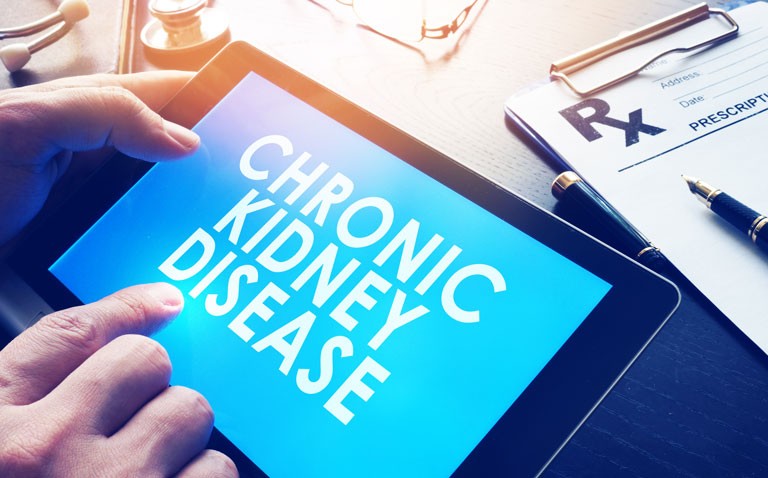In patients with chronic kidney disease, a mortality benefit from dapagliflozin has led to a license extension for use in this condition.
According to the UK Kidney Association, chronic kidney disease (CKD) is defined by abnormalities of kidney function or structure and which are present for more than three months.
This definition will include those with an estimated glomerular filtration rate (eGFR) of less than 60ml/min/1.73m2 on at least two occasions, 90 days part.
The condition is common and thought to affect and left untreated, chronic kidney disease is a major cause of kidney failure, leading to around one million deaths per year.
Moreover, figures compiled by Kidney Care UK, suggest that around three million people in the UK have CKD and that are currently receiving treatment for kidney failure and that 40,000 to 45,000 premature deaths occur every year in the UK due to CKD.
Globally, it is thought that there are around 840 million people with CKD, acute kidney injury and renal replacement therapy.
While there are several recognised causes of kidney disease, the top two causes are hypertension and diabetes, followed by glomerulonephritis, in which damage occurs to the glomeruli, although the condition is usually asymptomatic and only revealed upon testing.
The only known treatments capable of slowing a reduction in kidney function are angiotensin-converting-enzyme inhibitors (ACEi) and angiotensin-receptor blockers (ARBs). Now, a UK license extension has been granted to manufacturer, AstraZeneca, for the use of its drug, dapagliflozin (brand name Forxiga), in the treatment of patients with chronic kidney disease, with or without diabetes.
Dapagliflozin is a sodium-glucose co-transporter 2 inhibitor and which is indicated for the management of type 2 diabetes as an adjunct to diet and exercise for the management of type 2 diabetes as an adjunct to diet and exercise, either alone or in combination with other diabetic treatments. It is also licensed in patients with symptomatic chronic heart failure with a reduced ejection fraction.
Clinical data
The license extension was granted based on the findings of the DAPA-CKD Phase 3 trial. This was an international, multi-centre, randomised, double-blind, placebo-controlled study in adults with and without type 2 diabetes and who had stage 2 to 4 (i.e. eGFR 25 to 75 ml/min/1.73m2) CKD.
A total of 4,304 patients were randomised to either dapagliflozin 10mg or placebo and the primary outcome was a composite of a sustained decline in eGFR of at least 50%, end-stage kidney disease (i.e. stage 5) or death from either renal or cardiovascular causes.
The study was terminated early after only 2.4 years when the primary outcome had occurred in 9.2% of those taking dapagliflozin and 14.5% in the placebo arm, giving a hazard ratio, HR, of 0.61 (95% CI 0.51–0.72, p < 0.001).
There was also a significant mortality difference between both groups (HR = 0.69, 95% CI 0.53–0.88, p = 0.004) and the effect of taking dapagliflozin was similar in patients with and without type 2 diabetes.










